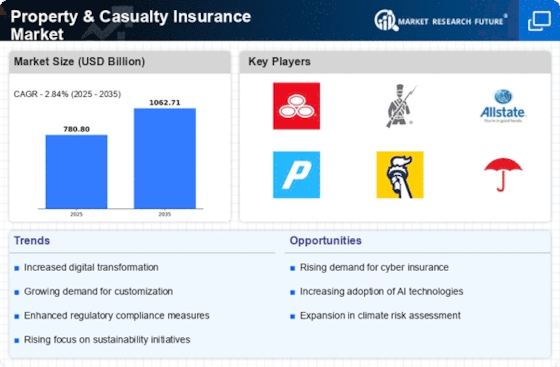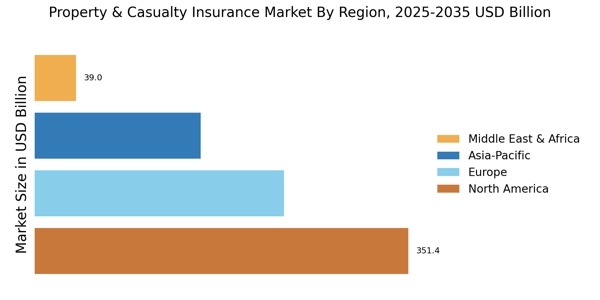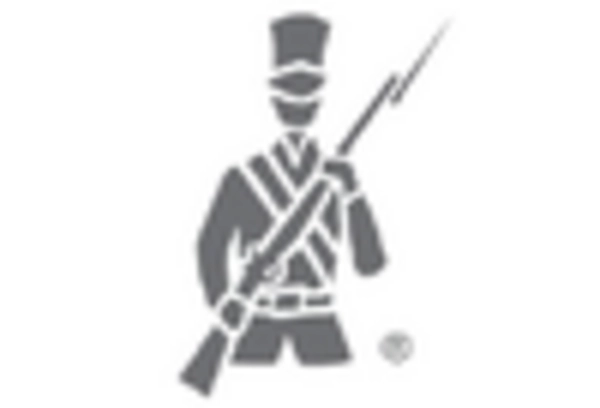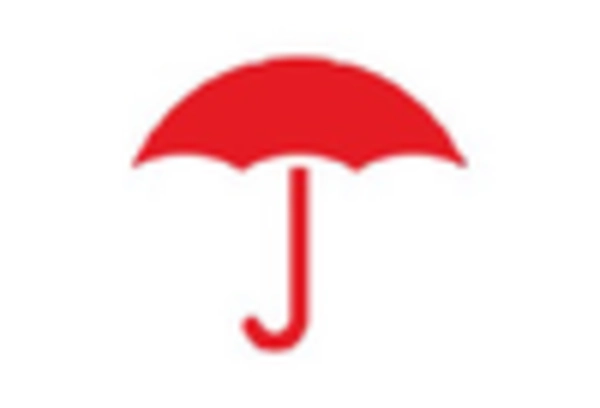Regulatory Changes
Regulatory changes play a crucial role in shaping the Property & Casualty Insurance Market. Governments worldwide are increasingly focusing on consumer protection and transparency, leading to the implementation of stricter regulations. For instance, the introduction of new solvency requirements and data protection laws can significantly impact how insurers operate. Compliance with these regulations often necessitates substantial investments in technology and processes, which can influence pricing strategies and market dynamics. As the regulatory landscape evolves, insurers must adapt to maintain their competitive advantage in the Property & Casualty Insurance Market.
Rising Natural Disasters
The frequency and severity of natural disasters are on the rise, which has profound implications for the Property & Casualty Insurance Market. Events such as hurricanes, floods, and wildfires are becoming more common, leading to increased claims and higher payouts for insurers. According to recent statistics, insured losses from natural disasters have surged, prompting insurers to reassess their risk models and pricing strategies. This trend may lead to higher premiums for policyholders, as insurers seek to mitigate potential losses. Consequently, the impact of climate change on the frequency of natural disasters is a significant driver influencing the Property & Casualty Insurance Market.
Technological Advancements
The Property & Casualty Insurance Market is experiencing a notable transformation due to rapid technological advancements. Innovations such as artificial intelligence, machine learning, and big data analytics are reshaping underwriting processes and claims management. These technologies enable insurers to assess risks more accurately and streamline operations, potentially leading to reduced costs and improved customer satisfaction. According to recent data, the adoption of AI in insurance is projected to increase efficiency by up to 30%. As a result, companies that leverage these technologies may gain a competitive edge, enhancing their market position within the Property & Casualty Insurance Market.
Consumer Awareness and Demand
Consumer awareness regarding insurance products is steadily increasing, which is a vital driver for the Property & Casualty Insurance Market. As individuals become more informed about the importance of insurance coverage, there is a growing demand for tailored policies that meet specific needs. This shift in consumer behavior encourages insurers to innovate and diversify their offerings, leading to a more competitive market landscape. Data indicates that a significant percentage of consumers now actively compare policies online before making purchasing decisions. This trend underscores the necessity for insurers to enhance their digital presence and customer engagement strategies within the Property & Casualty Insurance Market.
Economic Growth and Urbanization
Economic growth and urbanization are pivotal factors influencing the Property & Casualty Insurance Market. As economies expand, there is a corresponding increase in asset accumulation, leading to a higher demand for insurance coverage. Urbanization also contributes to this trend, as more individuals and businesses seek protection for their properties and liabilities. Recent data suggests that urban areas are experiencing a surge in population density, which may lead to increased risks and, consequently, higher insurance premiums. Insurers must navigate these dynamics to effectively cater to the evolving needs of consumers in the Property & Casualty Insurance Market.

















